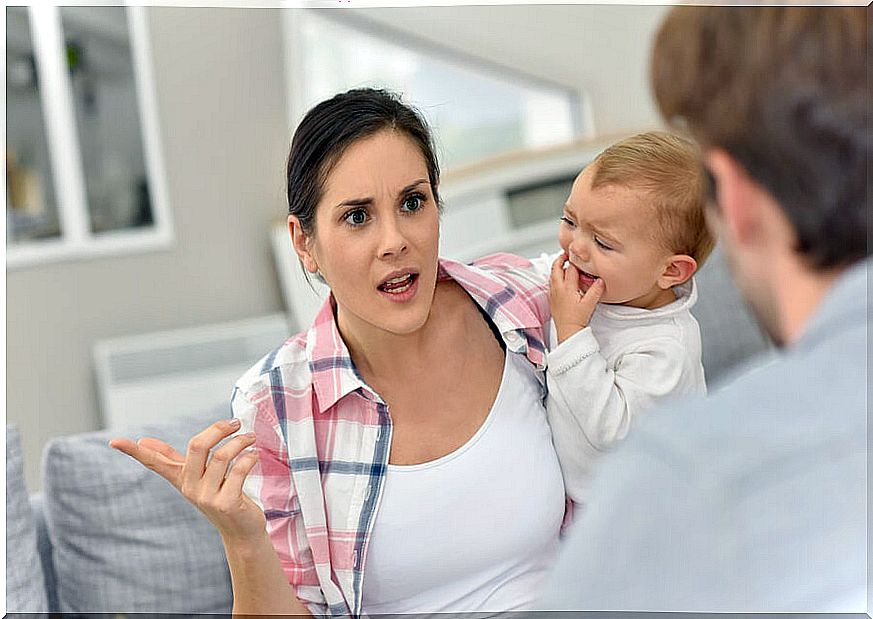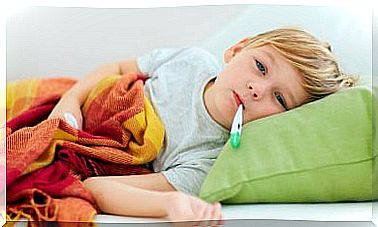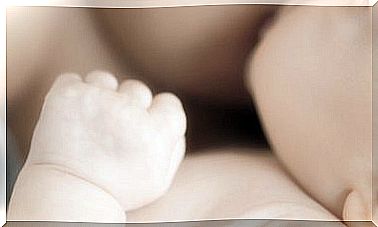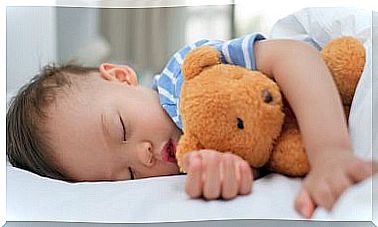Mother-child Separation: How To Deal With It?
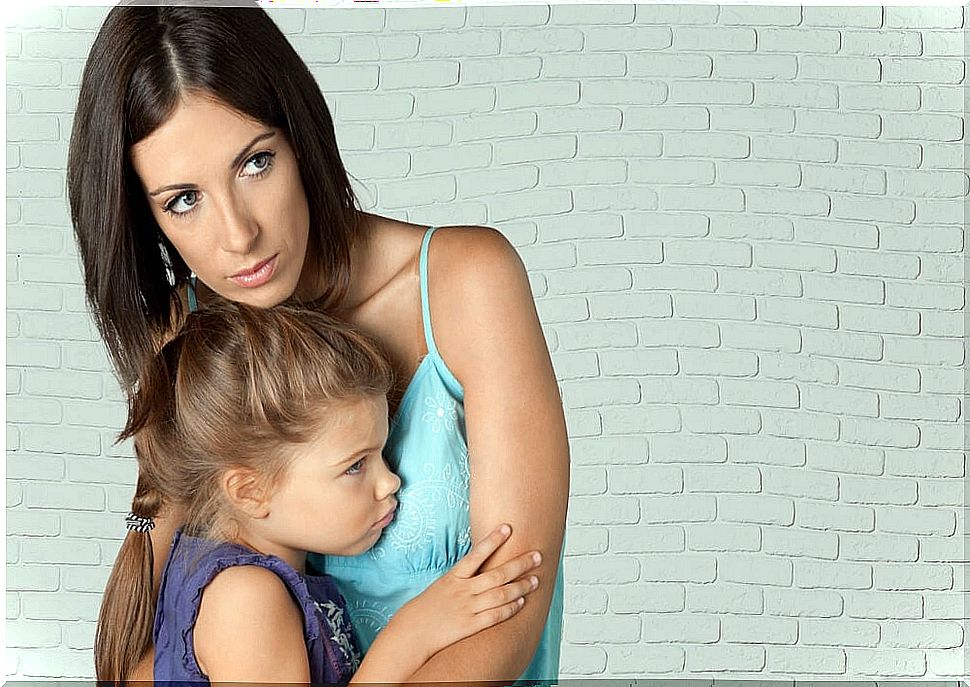
It is natural for younger children to experience a sense of anxiety at the time of the mother-child separation. After all, they are usually the ones who provide them with the care and affection that makes them feel calm.
Although the moment to say goodbye to the baby is very emotional, it is a normal experience in the development process of children. This happens due to the strong emotional bond that has been built over months between the little one and his mother.
Using good strategies, the time to separate from your child will not pose a big problem. However, when anxiety escalates or prevails for a long time, it is necessary to seek professional help to prevent it from becoming a serious disorder.
How to deal with the mother-child separation?
1. Practice small separations, first for short periods of time and short distances
Schedule small outings that involve separating from your child for a short time. Leave him with a safe company to help him entertain himself. He will gradually gain confidence knowing that you will return and he will know that even if you say goodbye, he will see you again soon.
2. Choose a suitable moment for the mother and son separation
Make sure that before saying goodbye to your child, he is well fed and has had enough sleep. Little ones are more susceptible to experiencing anxiety when they are tired or hungry.
3. Make up a short goodbye ritual.
The routines or rituals that are built as a family have a very important meaning for the little ones. Make sure this moment is as short-lived as possible so that your child doesn’t have time to think about being upset. Also, avoid staying visible after you’ve fired. Tell your children that you are leaving, that you will be back soon and then leave the place without much fuss.
4. Make sure your child has a constant caregiver
Whether in kindergarten or with a babysitter at home, make sure these people stick around for the long haul. This way there will be no inconsistencies in your little one’s daily life and they can feel more secure.
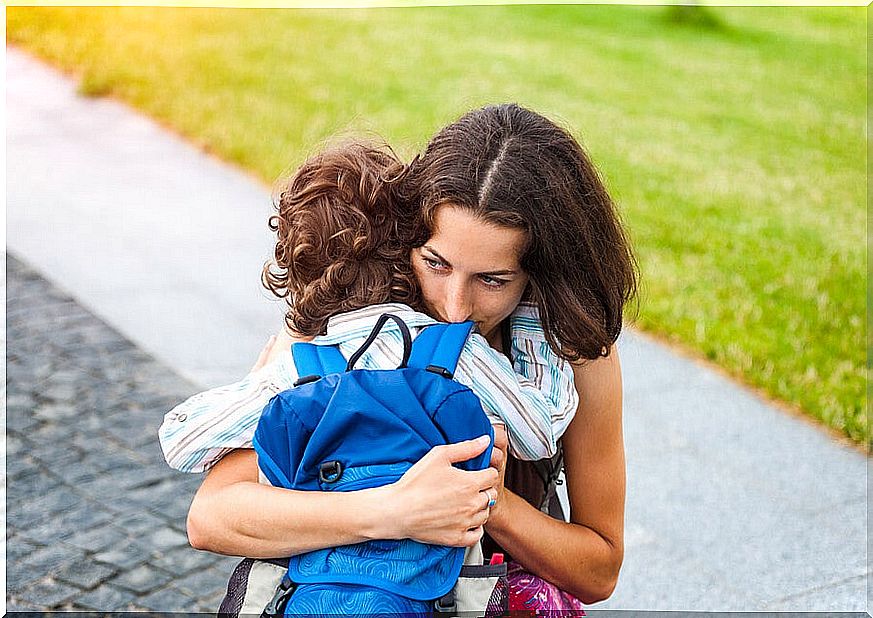
5. Stay on top of what the little ones see on television
Much of the content kids get from television can reinforce and increase their fears. Fear is a factor that considerably increases anxiety when it comes to the separation of mother and child.
“The bond between mother and child is created from the moment of pregnancy, and their emotional level increases during the moment of birth, breastfeeding and later with care in the first years of the child’s life . “
– Madrid Psychology Center –
What are the symptoms of separation anxiety?
- Disturbance at the thought that something terrible will happen to a loved one. Many children think, for example, that their parents will get sick or hurt while they are not with them.
- Concern about unpredictable events leading to permanent separation. Children with anxiety often think of events such as kidnapping, loss, and even death.
- They refuse to go to school. A child with separation anxiety disorder will not want to go to school. He will do anything he can think of to keep from leaving his home.
- Difficulty getting to sleep. Many of the children who are affected by anxiety also suffer from conditions such as insomnia. Nightmares are recurring and they don’t like the idea of being alone at night at all.
- Physical discomforts, such as stomachaches and headaches. One of the most common symptoms when this disorder occurs is that boys begin to show physical ailments as well.
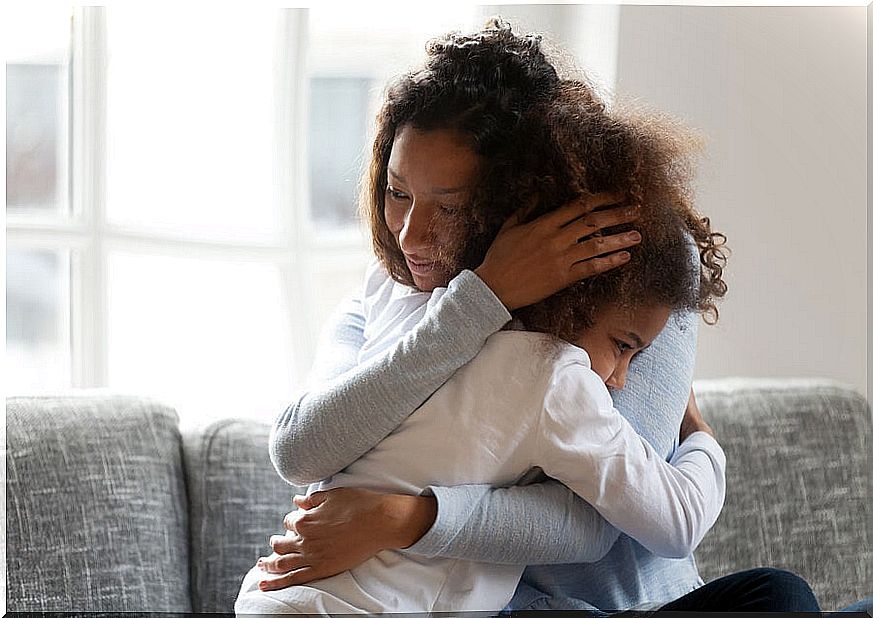
- Hold on to you before you say goodbye. This attachment, whether to the parents or the caregiver, is normal to some degree. It stops being healthy when it prevents them from doing their daily activities and interacting with their peers.
Conclution
The mother and child separation may not have to be a time of drama and crying. If you put the strategies mentioned above into practice, you shouldn’t have a problem with it. However, if you feel that the situation is getting out of hand, you need to start considering the presence of separation anxiety disorder. Pay attention to the symptoms and act soon if you think your little ones are suffering more than normal. If you think it is necessary, go to a professional.
